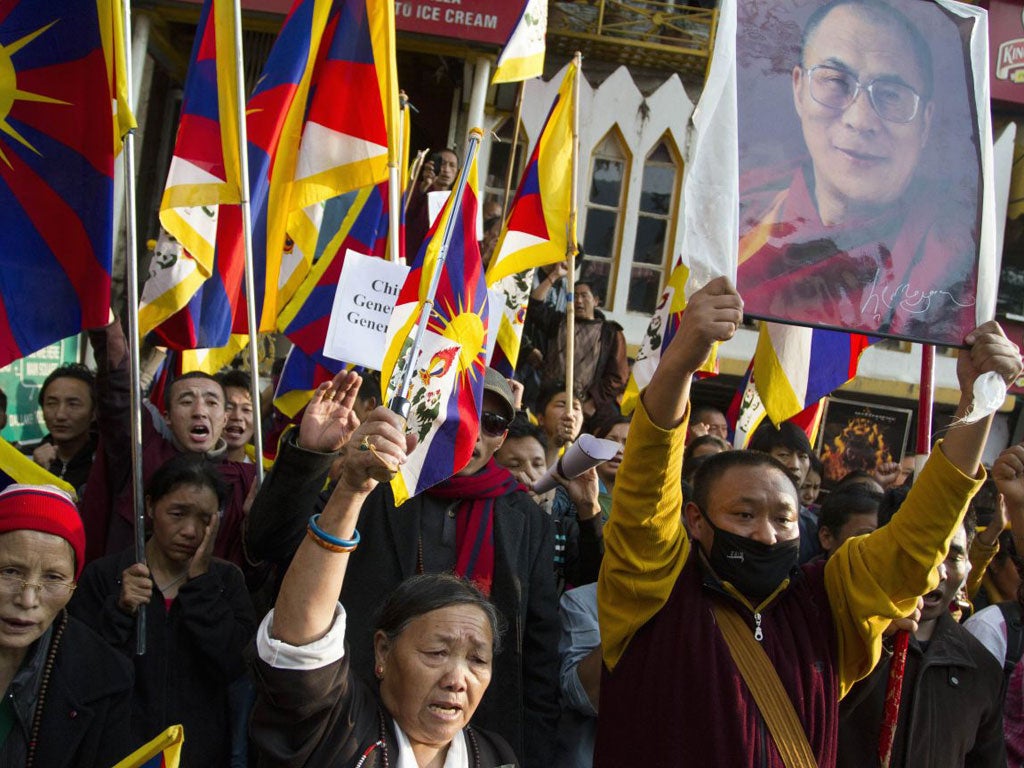Tibet crackdown fear as China protests escalate

Rights groups accused China of tightening security in restive Tibetan areas after a wave of self-immolation protests cast a shadow over the Communist Party congress in Beijing. Despite growing international calls for an independent inquiry, China said it would refuse to allow foreign observers into Tibet to investigate human rights abuses.
Six people have set fire to themselves since Wednesday, the eve of the crucial congress, in an attempt to draw attention to rights abuses in Tibetan regions.
As Chinese leaders were meeting – behind closed doors – to decide the composition of the political elite, hundreds of Tibetans gathered to protest in Rongwo, in Qinghai province, after the sixth self-immolation victim, Kalsang Jinpa, an 18-year-old monk, killed himself there on Thursday.
Armed police in paramilitary vehicles stepped up patrols in the province, Agence France-Presse reported, with experts saying the protests could prompt further clampdowns.
Rights groups say 69 Tibetans have set themselves on fire since March last year. At least 56 have died. Most of the protesters in Rongwo were secondary school students who marched through the town, shouting for independence and for the return of their spiritual leader, the Dalai Lama, from exile.
"These huge student protests are part of the wider Tibetan struggle for freedom. These brave young people are asserting their Tibetan identity as the Chinese Communist Party meets to decide the man who will lead the occupation of Tibet," said Free Tibet Director, Stephanie Brigden.
Qiangba Puncog, chairman of Tibet's rubber stamp regional assembly, accused external Tibetan separatist forces and "the Dalai clique" of sacrificing the lives of others to achieve ulterior political motives, and rejected calls for overseas monitors.
"We hope people from all fields within the country and outside go to Tibet often to look around, study and travel, but as to some other aspects, we are not that welcoming," he said.
Foreign journalists are barred from Tibet and have difficulty travelling to the Tibetan areas of neighbouring Sichuan and Qinghai, which means it is difficult to verify the situation. Mr Qiangba said it was "inappropriate" for anyone who wanted to investigate human rights to propose entering Tibet. On Thursday, he told the South China Morning Post: "I can't say there are no self-immolations in Tibet; however, most Tibetan people and monks didn't burn themselves."
Lobsang Sangay, Prime Minister of the government-in-exile in Dharamsala in India, said the younger generation of Chinese leaders "must recognise that China's hardline policies in Tibet have utterly failed and only through dialogue can a peaceful and lasting solution be found". At the Beijing congress, many important decisions are made by people who long ago disappeared off the official political radar. Jiang Zemin, the 86 year-old former leader, who many believed had died last year, has featured strongly in the congress, a sign he still wields influence. A known rival of Hu Jintao, he sat impassively on stage as the President gave his address.
Xi Jinping is expected to take over from President Hu next week, probably on Thursday, but until the horse-trading is over, it is unclear whether there will be seven or nine members of the all-powerful Standing Committee of the Politburo.
Join our commenting forum
Join thought-provoking conversations, follow other Independent readers and see their replies
Comments
Bookmark popover
Removed from bookmarks